Hell in the Highlands: Losing a warrant officer in the mountains while moving against Korean positions
- By George Hand
Share This Article
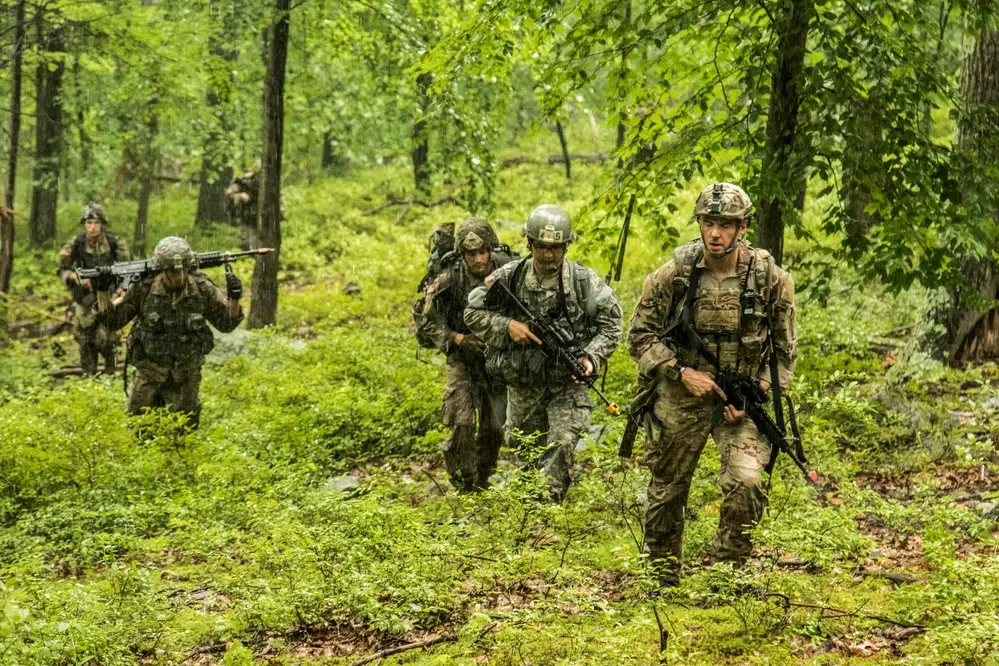
Hell in the Highlands was a mission that we so named because it all took place in the mountainous regions of Korea. Our mission was to scale some high ground and collect intelligence on a mass of hardware that our P-3 Orions patrol aircraft could detect but couldn’t see exactly what it was. The boss wanted a definitive account of what lay there under the thick array of camouflage nets.
Our Korean adversaries intended to amass a mobile logistics train in mountainous terrain where an enemy would not “stumble” over it. It was a good idea, but, boy, would they be pissed if we succeeded and identified what exactly they had hiding up in the mountains. Success would mean it would be that much easier to kill or capture the Korean supply depo.
We had one engineer out of action, wounded by a fall taken while practicing a technical climb. Aside from that, we had a full A-Team contingent of 11 men who were ship-shape and mission-ready for anything coming down the pike. We had all hoped for a mission down on flat terra firma grounds, but Hell on the Highlands wouldn’t be that.
The mission called for all 11 of us to parachute onto rice paddy grounds, move partway up the comfortable base of a designated hill, and establish a patrol base. From there, eight of the men would support a three-man patrol as it made the final move forward to RECCE (conduct reconnaissance on) the objective.
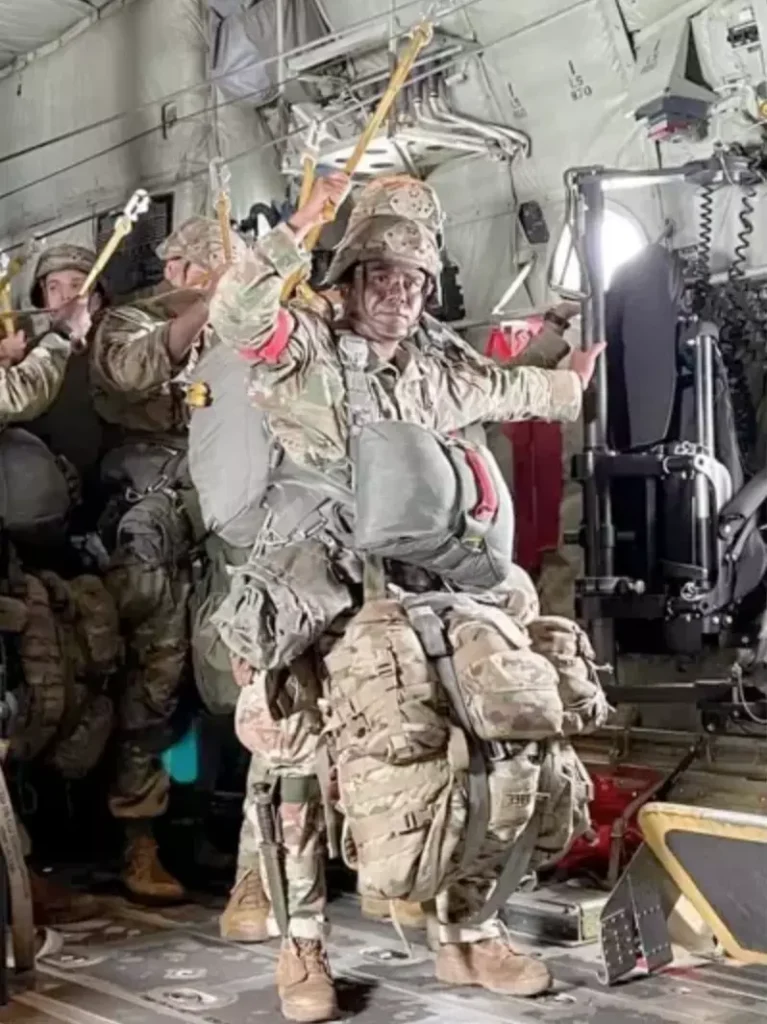
The jump in was at night (of course) and immediately there was a major problem: at our rally point away from the intended Drop Zone we were only 10 men; our warrant officer was missing. Christ… had we already lost a man? We left a team of two men at the drop zone to wait and watch for a specified amount of time to see if we could recover the man.
Our warrant officer was probably the least important guy on the mission, or any mission for that matter. He just wasn’t cut out to be on a mountain team like the rest of us – too much talking, not enough doing, always complaining. I know, after all, the days back in the rear I spent despising the man… but now I was actually scared to lose him as Killed in Action (KIA). He must be crazy and complaining like hell where ever he was.
Arriving at where we decided would be our Forward Support Base (FSB) we were down to eight men for the main push of the mission: one man lost, two men searching for the lost chief.
Our team had two radio communicators. We had left one at the Drop Zone and the other was with our eight-man team at the FOB. Soon, he received an out-of-schedule real-time report from the communicator at the Drop Zone:
“QRA //DE// Henri First// BT
Lost: Henri the 11th and searching with two-man patrol//
Found: parachute hanging above ground from communication lines//Unable to retrieve chute//awaiting further instructions//Henri First sends// IMI BT AR”
Related: MARSOC Raiders to deploy in smaller, tech-loaded teams as conflict gets more complex
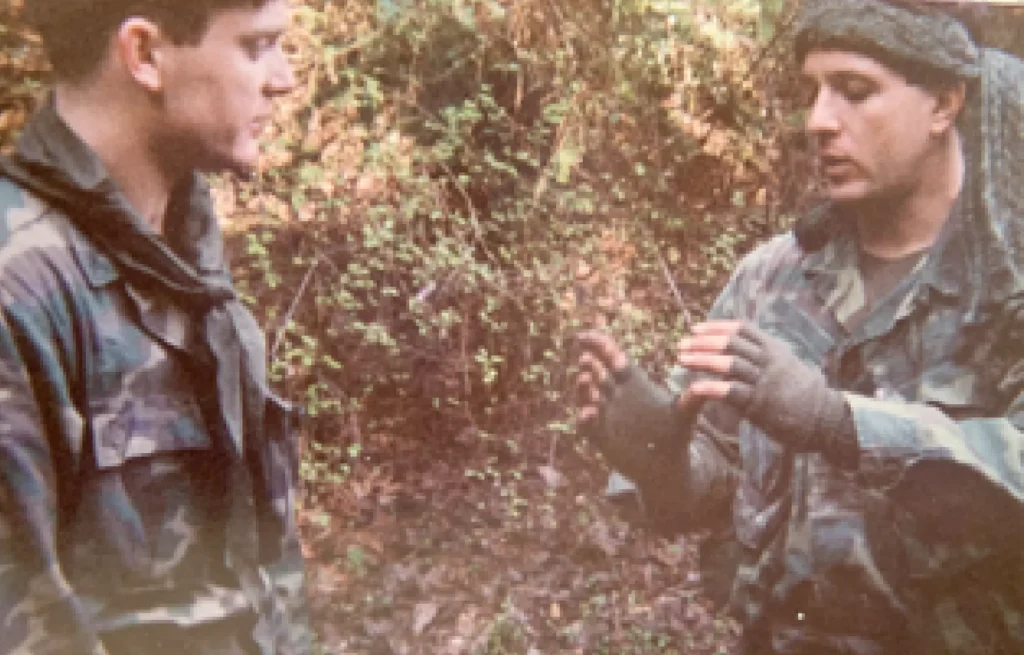
“Have Henri Second and Fourth head out toward the DZ to see if they can run into those men and provide support,” our captain, Henri the Eighth ordered. Henri the Second was a medic, and Henri the Fourth was our other engineer. I could see that the Old Man, our captain, was doing his best to keep traditional Green Beret team integrity. Henri the Eighth was a good team leader.
For our communications, we used both real-time voice and digital Morse code. The captain always used manual Morse code to send in our first report (ANGUS) upon infiltration to prevent getting into a long voice conversation with the Rear Support Base (RSB). There was a full colonel at the RSB and our boss didn’t give a rat’s ass about him, or care what his ideas were because he already knew how he was going to run his show.
“That ass… he needs to stay at his desk playing with Tonka Trucks and reading MAD Magazine – it’s not like some of his ideas are stupid – ALL his stupid ideas are just… stupid! That guy could go for a walk on the beach and the tide wouldn’t come in.”
It was true that the colonel at the Rear Support Base was not well-liked, in general, and was just plain loathed by our captain Henri the Eighth.
Related: How the Army’s Delta Force and Night Stalkers teamed up to rescue hostages in Iraq
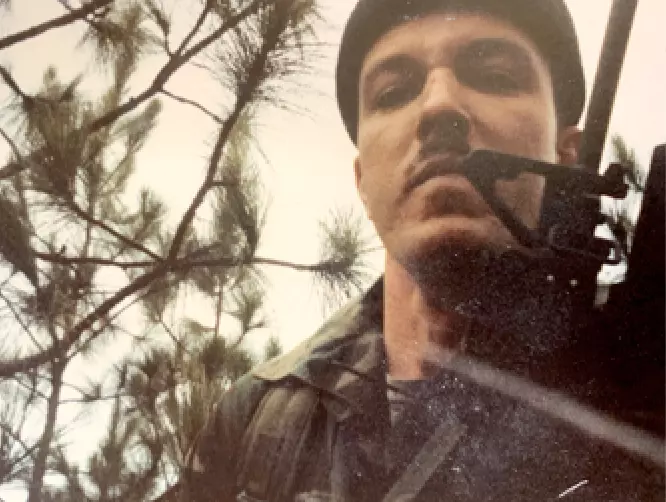
After a while, the two brothers minus the warrant officer (Henri the Eleventh) broke through our FOB security line huffing and puffing. One of them was actually shedding some tears. I know he must have felt bad about losing the chief. I patted him on the back to soothe him, at which point he looked at me and said:
“Jesus Christ, that climb was a motherf***er, ya know?”
Well, to each his own solace, I suppose.
By Almighty God and with honor,
geo sends
Editor’s Note: Stay tuned for Part II in which the men move against the Korean positions and the fate of the warrant officer is revealed.
Read more from Sandboxx News
- Country music star Craig Morgan re-enlists in the Army to boost recruitment
- Russia is using deadly air tactics to stop Ukraine’s counteroffensive
- The MC-51 was a super short blaster used by UK’s elite warriors
- The Marines’ new drone-truck can take out enemy ships from 1,000 miles out
- The CIA used miniature models to meticulously plan high-stakes operations
Related Posts
Sandboxx News Merch
-

‘AirPower’ Classic Hoodie
$46.00 – $48.00 Select options This product has multiple variants. The options may be chosen on the product page -
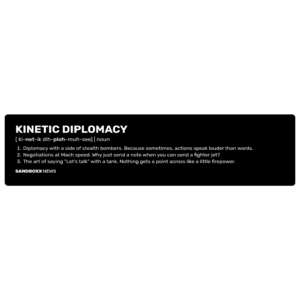
‘Kinetic Diplomacy’ Bumper Sticker (Black)
$8.00 Add to cart -

‘Sandboxx News’ Trucker Cap
$27.00 Select options This product has multiple variants. The options may be chosen on the product page
George Hand
Master Sergeant US Army (ret) from the 1st Special Forces Operational Detachment-Delta, The Delta Force. In service, he maintained a high level of proficiency in 6 foreign languages. Post military, George worked as a subcontracter for the U.S. Department of Energy (DOE) on the nuclear test site north of Las Vegas Nevada for 16 years. Currently, George works as an Intelligence Analyst and street operative in the fight against human trafficking. A master cabinet-grade woodworker and master photographer, George is a man of diverse interests and broad talents.
Related to: Special Operations
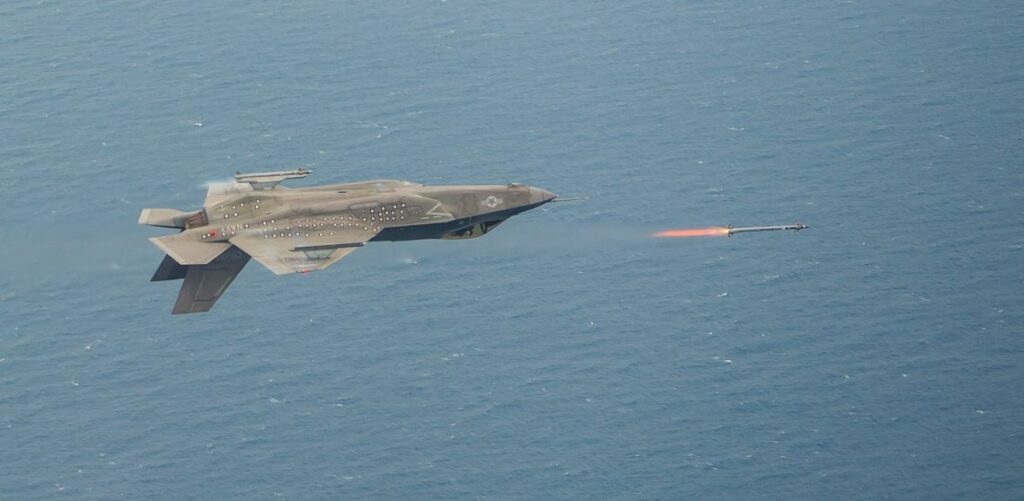
The gravity of the situation: How to fly a fighter upside down
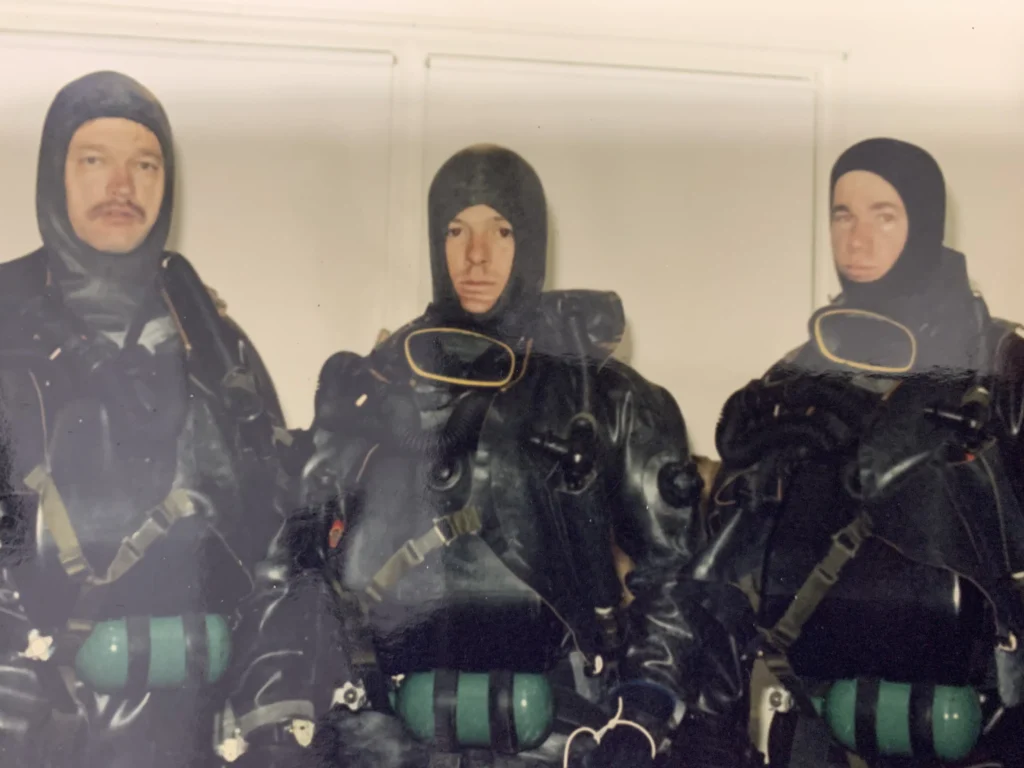
Airborne adventures with a Green Beret Combat Dive Team

Legendary US Army Ranger William ‘Doc’ Donovan achieves very rare special operations honor
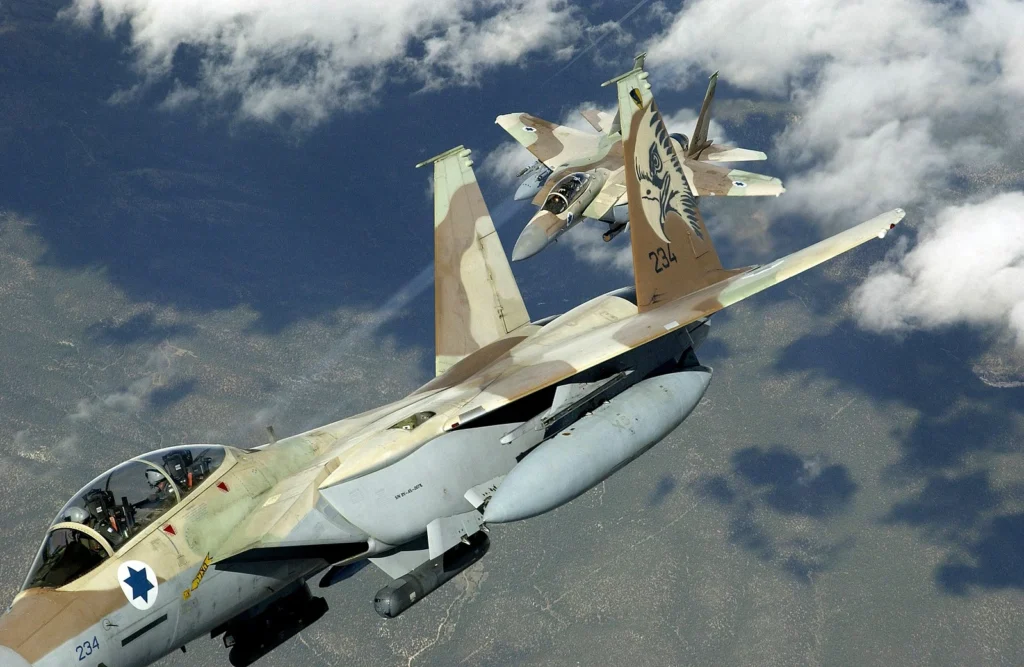
Sandboxx News
-

‘Sandboxx News’ Trucker Cap
$27.00 Select options This product has multiple variants. The options may be chosen on the product page -

‘AirPower’ Classic Hoodie
$46.00 – $48.00 Select options This product has multiple variants. The options may be chosen on the product page -

‘AirPower’ Golf Rope Hat
$31.00 Select options This product has multiple variants. The options may be chosen on the product page -

‘Sandboxx News’ Dad Hat
$27.00 Select options This product has multiple variants. The options may be chosen on the product page
